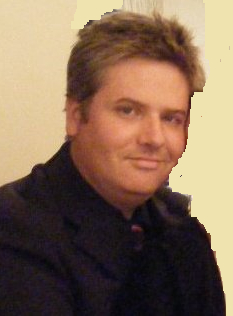I recently read this great piece of research published in the British Medical Journal by Australian Pharmacists.
It reviews the literature to identify barriers to optimal prescribing and discusses strategies to overcome these barriers.
http://bmjopen.bmj.com/content/4/12/e006544.full.pdf+html
As a keen sailor in my teenage years and early twenties I was extremely lucky to have as my coach and friend a man by the name of Mick Ralph. Mick was very skilled at identifying and remedying “inappropriate sailing” and went on to be the making of two Australian Olympic gold medallists and five Australian World Champions. I think that our role as Accredited Pharmacists is primarily one of a “medication coach” both for prescribers and patients. To perform this role successfully I think there is much to learn from the way Mick approached things.
Mick liked to quote a famous observation about sailboat racing by the legendary Eric Twiname and I note similar themes are found in the British Medical Journal article about prescribing. Twiname noted that if there was a heavy weather sailing race and a lay observer was asked what was the difference between the boats leading the race and those at the back of the fleet, after a few facetious replies such as “they’re sailing faster” he or she would notice that the boats at the front of the fleet had their masts pointing vertically to the sky, whereas those at the back of the fleet were leaning over. With careful observation it is clear to any observer without any sailing knowledge that the first priority in heavy weather sailing is to keep your mast at right angles to the water.
The conundrum is that when you actually ask those at the tail end of the fleet why they are sailing their boats leaned over, they always have a good reason why they are doing this even though their explanation doesn’t stand up to scrutiny. Some say that it is more important to keep their sails fully sheeted in when those at the front regularly de-power their sails and let them flap to keep their boats upright. Others say they aren’t heavy enough to keep the boat upright when there is a lighter crew that won the race. This observation was made in the Seventies but the same scenario plays out at any sailing regatta today.
We must expect that prescribers and patients will have their own well thought out reasoning about why they go about things in a particular way as this is part of human nature. The stages of change and Motivational Interviewing theory go some way toward providing some ideas about affecting change in such a situation. I think being able to develop trust from the person you are trying to help to change their behaviour is an even more important requirement.
There is no accrediting body for Super Duper sailing coaches. I trusted Mick for a number of reasons not the least of which was that he had coached the previous World Champion in my class of sailing boat. Mick was somebody with infectious passion for his area of knowledge and his knowledge was vast. He often had insights that were absolute common sense but everyone else had missed. His passion and keen ability to explain things I had previously thought complex in a simple way gave me confidence in his mastery of his subject. He would listen and respect my input, and patiently explain why some of my reasoning about beliefs I held about certain aspects of sailboat racing could be improved. I trusted him because he ate, slept and lived sailing and had an intimate knowledge of something I was passionate about. I must make the point that as a difficult student deficient in talent I fell far short of Olympic standard.
I think in the same way as Mick, Community Clinical Pharmacists need to eat, sleep and live Clinical Pharmacy. We need to chalk up some more wins in the medical literature and let the Medical community know about the victories we have already won. We should have good knowledge of Australian and International clinical prescribing guidelines, have detailed knowledge of drug and disease state interactions, be up to date with the latest landmark studies as they are published, have detailed knowledge of new medications and especially have specialist knowledge about medication issues in the elderly. We should be able to communicate relevant information to patients and prescribers clearly and simply.
Of course it will always be up to the prescribers and patients to take on board our advice, but those at the back of the fleet will wish they had listened to us when Australian Community Clinical Pharmacists just keep on chalking up more World Championships and Olympic Gold Medals.
